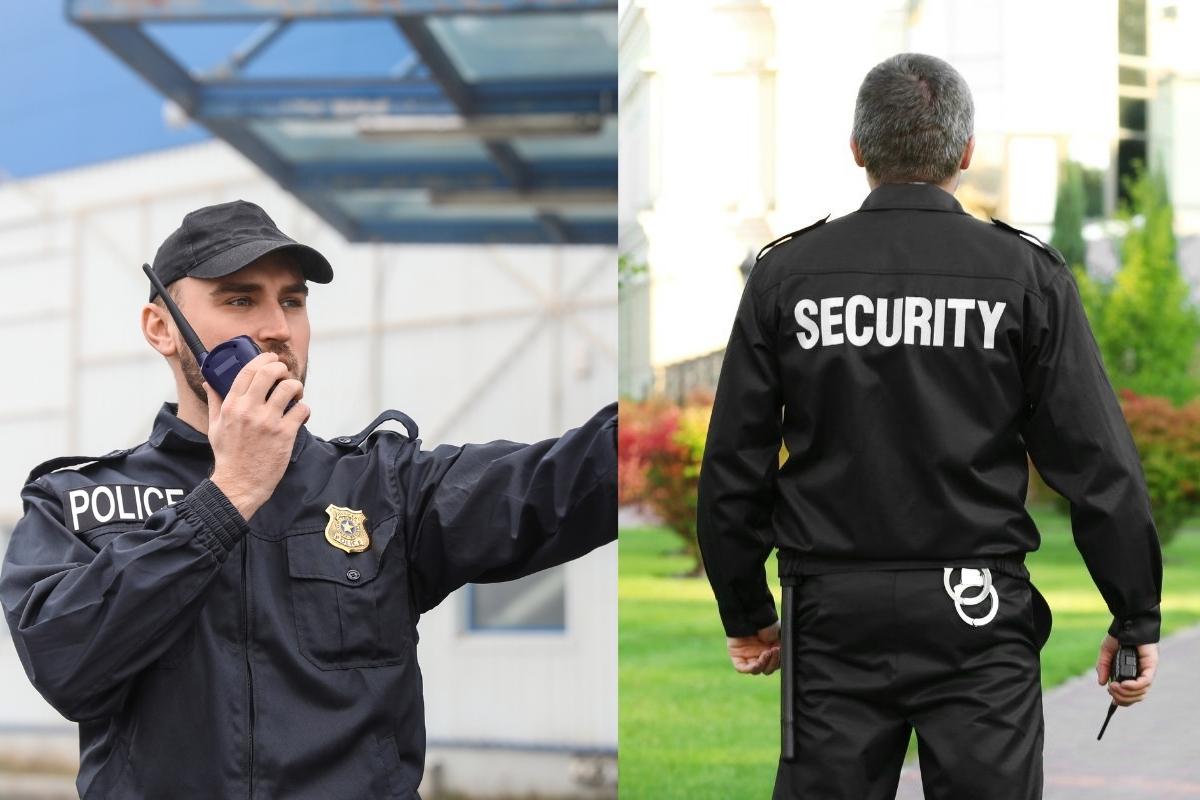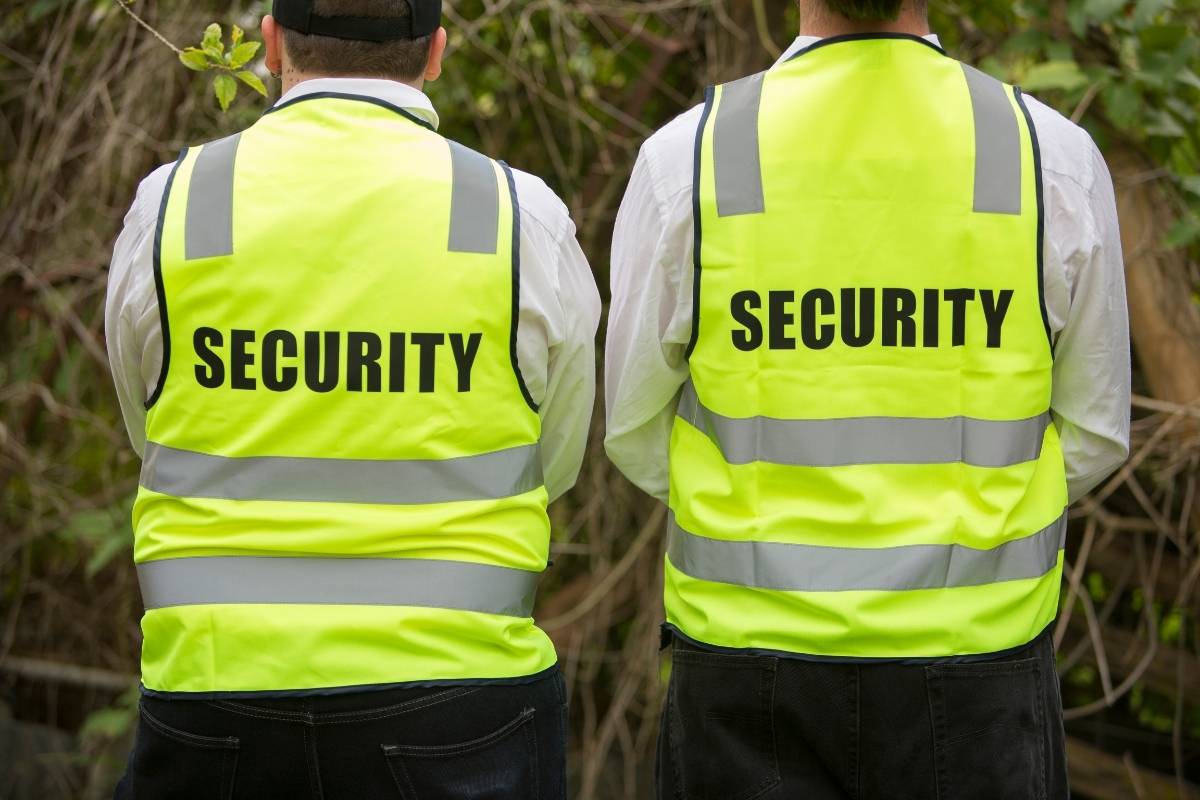
- Tue, Oct 2025
- |
- Reliable Guard and Patrol Service Inc.
Warehouse security guards protect valuable inventory, manage facility access, and respond to emergencies in storage and distribution centers. These trained professionals monitor entrances, conduct regular patrols, document incidents, and coordinate with law enforcement when necessary. Their primary responsibilities include preventing theft, controlling visitor access, maintaining safety protocols, and ensuring business continuity. Security personnel serve as the first line of defense against unauthorized entry, property damage, and potential safety hazards.
Professional warehouse guards handle multiple critical tasks including surveillance monitoring, emergency response coordination, and detailed record keeping throughout their shifts. They implement access control procedures, inspect outgoing shipments, and assist with crowd management during peak operational periods. These security services help reduce theft risks, maintain accurate inventory records, and create safer working environments for employees. Investment in qualified security personnel provides measurable returns through reduced losses, improved operational efficiency, and enhanced client confidence.
Modern storage facilities require comprehensive protection strategies that address evolving security threats and regulatory compliance requirements effectively. Security teams work closely with facility management, emergency responders, and law enforcement agencies to maintain secure operations. Their expertise in threat assessment, incident response, and preventive security measures directly impacts business success and long-term profitability.

Why Storage Facility Protection Matters
Protecting storage facilities ensures the safety of valuable inventory, staff members, and daily operational activities. Effective protection systems prevent criminal activities while maintaining accurate inventory records and sensitive information. Strong safety procedures help reduce potential threats and keep operations running smoothly without interruption. Safe working conditions boost employee confidence and create higher performance levels throughout the facility. Reliable protection builds client confidence and provides business advantages in today’s vulnerable supply networks. Professional security personnel form the backbone of dependable and protected distribution systems. Comprehensive warehouse security benefits directly impact long-term business success and operational efficiency across all facility departments.
What Security Personnel Do at Storage Facilities
Security staff members implement protective procedures to shield distribution centers from criminal activities and safety threats. These professionals focus on creating safe environments that protect stored merchandise and facility workers alike. Their duties involve continuous monitoring and responding to potential security issues throughout their shifts. Trained personnel serve as the first line of defense against unauthorized entry and property damage.

Essential Tasks for Security Personnel
Security officers handle numerous critical duties that help maintain safe conditions within distribution facilities. Every responsibility plays an important part in protecting valuable inventory, staff members, and company assets. These tasks require constant attention and professional training to execute properly and effectively. Skilled security teams coordinate their efforts to provide comprehensive protection across all facility areas.
Controlling Who Enters the Facility
Security personnel oversee entry management by carefully monitoring all entrance and exit locations throughout the facility. Staff members confirm the identity of people requesting access to ensure only authorized individuals enter. This process includes examining identification cards and recording detailed visitor information for security records. Proper verification procedures help prevent unauthorized entry and maintain accurate records of facility access. These protocols create multiple layers of protection that strengthen overall warehouse security measures.
Regular Monitoring and Facility Patrols
Security officers perform scheduled walks through storage areas to identify and prevent suspicious behavior patterns. Professional staff utilize monitoring technology and camera systems to observe different sections of the facility. These regular inspections help detect potential security violations and unauthorized presence before incidents occur. Consistent patrol schedules ensure comprehensive coverage of all facility areas throughout operating hours. Advanced surveillance innovations enhance the effectiveness of traditional security patrol methods significantly.
Responding to Security Alerts
Security personnel receive training to handle alarm situations and security incidents with quick, professional responses. Officers investigate alert causes while evaluating the severity of each situation before taking corrective action. Response procedures may require coordination with local authorities or facility management to resolve security concerns. Trained staff follow established protocols to ensure appropriate responses to different types of security events. Quick response times help minimize potential damage and restore normal facility operations efficiently.
Handling Emergency Situations
Security personnel receive comprehensive training to manage various crisis scenarios including fires, medical incidents, and natural disasters. These professionals assist with safe evacuations while following established emergency procedures to protect facility occupants. Staff members coordinate with emergency responders and facility management during critical situations requiring immediate action. According to OSHA guidelines, proper emergency training ensures security teams can respond effectively when unexpected situations threaten employee safety. Quick decision making during emergencies helps minimize potential injuries and property damage throughout the facility.
Protecting Stored Items
Security officers play essential roles in safeguarding valuable merchandise and equipment housed within storage facilities. These professionals implement protective strategies to prevent theft, property damage, and unauthorized item removal from premises. Staff members monitor shipping areas while conducting regular inventory verifications and inspecting outbound deliveries carefully. Comprehensive asset protection requires constant vigilance and adherence to established security procedures throughout all shifts. Effective warehouse security guard duties help maintain inventory accuracy and reduce financial losses from criminal activities.
Managing People Flow
Security teams control visitor movement during peak operational hours and special facility events to maintain order. Officers ensure smooth traffic patterns while preventing overcrowding in areas with heavy pedestrian and vehicle activity. Professional staff enforce established safety guidelines to reduce accident risks and potential injury incidents effectively. The Security Industry Association emphasizes that proper crowd management helps maintain productive working conditions while ensuring everyone follows facility safety protocols. Strategic positioning of security personnel creates better visibility and faster response times during busy periods.
Keeping Records
Security personnel create comprehensive documentation and incident reports that detail all activities occurring during their shifts. Officers record security violations, unusual behavior patterns, and policy breaches discovered during routine facility inspections. These detailed records help identify recurring problems while providing valuable information for future security planning efforts. Accurate documentation supports legal proceedings and insurance claims when security incidents result in property damage. Consistent record keeping creates historical data that helps improve overall facility security strategies over time.
Working with Outside Agencies
Security officers serve as communication bridges between facility management and external law enforcement or emergency response teams. When incidents require police involvement or medical assistance, security staff coordinate communication between all participating parties. These professionals ensure smooth information sharing during critical situations that demand multi-agency cooperation and response. ASIS International standards emphasize that effective liaison work helps expedite emergency responses while maintaining clear communication channels throughout incident resolution processes.
Required Skills and Training
Security personnel complete specialized training programs designed to develop essential skills needed for effective facility protection duties. Training curricula address security protocols, emergency procedures, monitoring techniques, conflict management, and professional communication with visitors. Professional development programs ensure officers understand current laws, regulations, and industry best practices for facility security. The Department of Labor requires that successful security professionals demonstrate excellent communication abilities and maintain sharp attention to important operational details consistently. Officers must stay physically fit while remaining calm during high-pressure situations that require immediate decision making. Personal integrity and trustworthiness form the foundation of professional security work in storage facility environments. Many facilities choose between armed security services and unarmed security personnel based on their specific needs. Continuous education helps security teams adapt to evolving threats and changing facility security requirements effectively.
Security professionals serve vital functions in maintaining protection standards throughout storage and distribution facility operations nationwide. Their duties encompass entry management, facility monitoring, alert responses, emergency coordination, asset protection, crowd management, and detailed documentation. Professional warehouse security services contribute significantly to operational safety through consistent vigilance and dedicated service to facilities. These trained individuals protect valuable assets and personnel from various security risks and potential threats daily. According to the National Association of Security Companies, comprehensive security solutions ensure storage facilities operate efficiently while maintaining high safety standards for all occupants. Local businesses in areas like West University Place, Southside Place, Hunters Creek Village, and Kingwood rely on professional security teams for facility protection.
Conclusion
Professional security personnel provide essential protection services that keep storage facilities operating safely and efficiently nationwide. These trained individuals handle multiple critical responsibilities including access control, emergency response, asset protection, and detailed documentation procedures. The Greater Houston Partnership recognizes that comprehensive security measures directly impact business continuity while protecting valuable inventory and ensuring employee safety throughout daily operations.
Investing in qualified warehouse security guard services creates measurable benefits for storage facility owners and operational managers across all industries. Professional security teams reduce theft risks, prevent unauthorized access, and maintain detailed records that support legal and insurance requirements. The Better Business Bureau and Houston West Chamber of Commerce note that facilities with robust security protocols experience fewer incidents while building stronger client relationships and maintaining competitive advantages. Industry publications like Security Magazine and organizations such as the Private Security Providers Association continue to emphasize the importance of professional security services. For more information about comprehensive security solutions, contact our team today.
FAQs
What shifts do warehouse security guards typically work?
Most warehouse security guards work rotating shifts including nights, weekends, and holidays to provide continuous protection coverage for facilities.
Do warehouse security guards need special licenses or certifications?
Security guards typically need state licensing, background checks, and facility-specific certifications before working in warehouse environments across most locations.
What equipment do warehouse security guards typically carry or use?
Guards commonly use radios, flashlights, keys, incident report forms, and may carry protective gear depending on facility requirements and policies.
How long does it take to complete warehouse security guard training?
Basic security guard training usually takes one to four weeks, with additional warehouse-specific training lasting several days to weeks afterward.
What background checks are required to become a warehouse security guard?
Most facilities require criminal background checks, employment verification, reference checks, and sometimes credit checks before hiring security personnel for positions.



